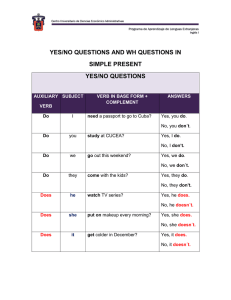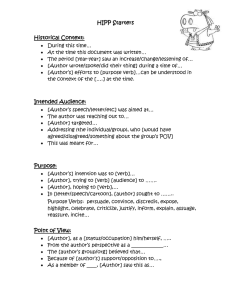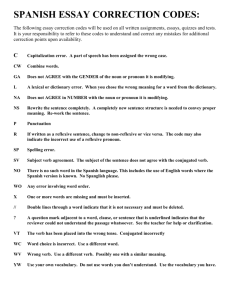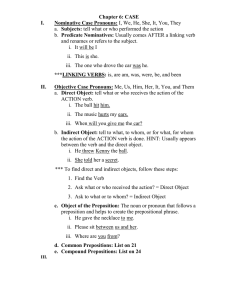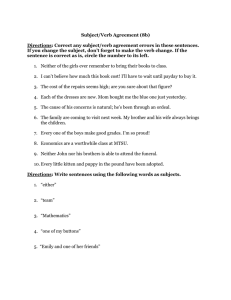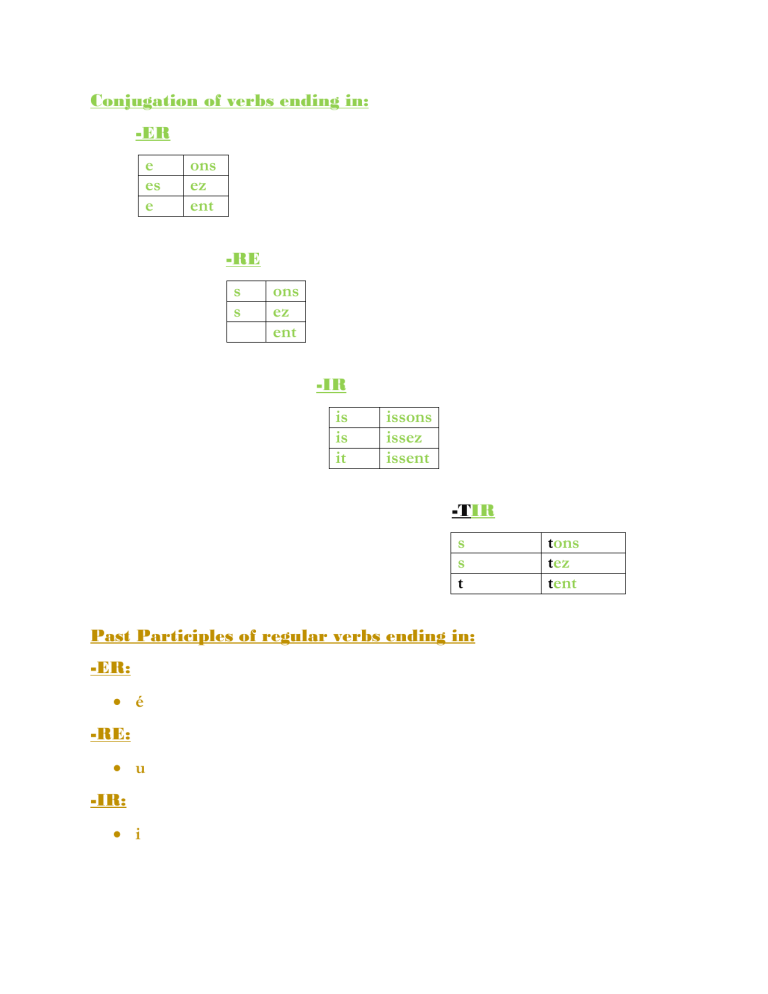
Conjugation of verbs ending in: -ER e es e ons ez ent -RE s s ons ez ent -IR is is it issons issez issent -TIR s s t Past Participles of regular verbs ending in: -ER: é -RE: u -IR: i tons tez tent Passe Compose: Avoir (6B) Subject + Auxiliary verb (conjugated avoir) + past participle (of main verb) ai avons as avez a ont Negative sentence: ne/n’ + conjugation + pas n’ai pas p.p n’avons pas p.p n’as pas p.p n’avez pas p.p n’a pas p.p n’ont pas p.p Adverbs: subject + auxiliary + adverb (deja, encore, bien, mal, and beaucoup) + p.p Negative adverb: subject + negative auxiliary + pas + adverb + p.p Indirect object pronouns: only when a sentence has à + personne me (to/for me) te (to/for you) lui (to/for him/her) nous (to/for us) vous (to/for you) leur (to/for them) Indirect statement: subject + indirect object pronoun + verb conjugation that agrees with indirect pronoun (+ secondary object, etc.) Negative indirect statement: subject + ne + indirect object pronoun + verb conjugation that agrees with indirect pronoun + pas (+ secondary subject, etc.) If an infinitive follows a conjugated verb (essentially when it’s a sentence implying doing something in the near future): subject + conjugated verb that agrees with subject + indirect object pronoun + verb infinitive Remember: a verb infinitive is the unconjugated version of the verb. Remember: Direct object before auxiliary make agreement. Only applies here Passe Compose: Etre (7A) Subject + Auxiliary verb (conjugated etre) + past participle (of main verb) suis sommes es etes est sont Command Form (L’imperatif): Does not need L’imparfait: Does not need an auxiliary verb. Always uses the nous form of the present tense of a verb, -ons. ais ions ais iez ait aient Verb infinitives ending in -ger need to have an added e, except in nous and vous form (because they already have an i to make the correct pronounciation) Verb infinitives ending in -cer change the c to ç, except in nous and vous forms.
